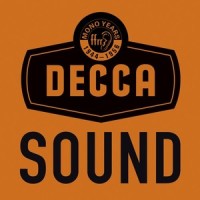Decca Sound: The Mono Years 1944 – 1956
|
Mike Silverton [May 2015.]
Like classical music’s other “majors” – exemplary Naxos apart – Universal Music has largely surrendered its present-day place on the road to sublimity. Indeed, labels formerly (and quaintly) called “littles” have active art-music catalogs the equal of or larger than those of Decca, Archiv and Deutsche Grammophon. (Universal’s pop labels take up the slack.) Nor ought we to despair over the disappearance of great recordings. Universal has been issuing handsomely boxed, abundantly annotated bargain priced bricks in categories especially valuable to those who’d like to be better acquainted with classical’s extraordinary range, from ancient music (not truly classical but convenient for these remarks) to 20th century in the hands of stellar performers. I’ve acquired several: Archiv Produktion / 1947 – 2013, 55 CDs of largely Medieval through Baroque; Pierre Boulez / 20th Century, 44 CDs of Boulez as conductor; Boulez / Complete Works, 13 CDs; The Decca Sound, 50 CDs of wide-ranging repertoire; The Decca Sound / The Analogue Years, 50 CDs again of wide-ranging repertoire; Britten, The Performer, 27 CDs of Britten as conductor and accompanist; and Mstislav Rostropovich / The Complete Decca Recordings, 5 CDs. Decca’s The Mono Years / 1944 – 1956, the latest arrival, is, for me, the most evocative. At about age nine I “discovered” classical music through a bedside radio. At one fraught moment in a convalescence from I can’t recall what, I hit upon something that sounded engaging. Through my college years and later, New York City had a few good classical music stations to its credit, the most adventuresome in terms of new music, the city’s municipal station WNYC, with WQXR more given to core repertoire, and in the early evening, Light European kitsch. There was also WNCN, a prominent classical station that abandoned ship in the 90s for rock – and different call letters. Lest I bedazzle with a lonesome kid’s taste, a favorite in my pre-teen years was Von Suppé’s Light Cavalry Overture, an oft-exercised QXR war horse. Another was the Anvil Chorus on my father’s recommendation. That I played as a 78 on a Philco 1201 radio-phonograph. The disc remained for some time the sole occupant of a collection that, as I write, fills two rooms. (I’ll never understand why I recall the Philco’s model number when so much else has fled from my head.) And, of course, I must add the redoubtable 1812 Overture to one’s fund of youthful stimuli, not to neglect Strauss waltzes. One was also given to the solo diversion the Boy Scout Manual warned against. With respect to directions, kids today face a mass-culture chaos. I can’t imagine any nine year old repeating my narrow-gauge experience of music. The sources aren’t there. While it can’t be denied that snobbery drove my timid rebellion against a blue-collar environment – Brooklyn’s Flatbush – it’s likewise true that engagement and affection played their parts. CD 53, the last in this collection, features the Wiener Oktett’s reading of Mendelssohn’s Oktett, Op. 20. I fell in love with it by way of, again and mostly always, radio. Hearing the 1953 recording now restored my original impression of radiant joy and drive. Has anyone under 50 heard of the Boyd Neel Orchestra? By 1950, the time of their recording of Handel’s Op. 6 Concerti Grossi, the period-performance dictatorship had yet to achieve its present foothold. Would it be interesting to hear a different approach? This provides. The long since departed Quartetto Italiano’s CD brings us their especially lush way with Verdi’s String Quartet in E minor. I never even knew of its existence! To go in depth into a 53-CD collection of well-filled discs would exhaust what remains of my sanity and your patience. The 185-page booklet (!) of venues and dates features an essay by Michael Gray, “The Decca Sound – ffrr (Full Frequency Range Recording)” and Raymond McGill’s “Developing an Artist Roster and Building a Catalogue.” If this merry mix appeals as I think it should, you might want to look into The Analogue Years and The Decca Sound, both consisting of stereo recordings, the latter of older and more recent fare. As the quip about Irish foreplay has it, Brace yerself, Bridget.
[More Mike Silverton]
[Previous Article:
Used Bin Troll Tweets L.]
[Next Article:
Disagreeable Remarks]
|
